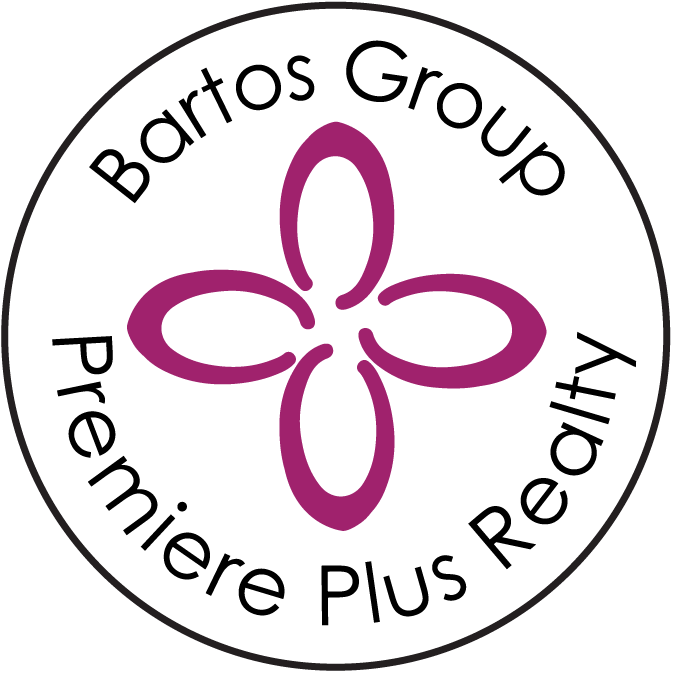
Bartos Group presents a candid and practical look at why real estate agents should consider joining a team — especially now, when more than 60,000 agents in the US have left the business this year. In the video, the Bartos Group explains how a thoughtfully built team model removes administrative burdens from agents, provides fractional access to specialized roles, and creates an environment where agents can focus on serving clients and growing their business. This article expands on those points, explains how the team’s systems work, and addresses common questions for agents who want to join a real estate team.
Why Now Is the Time to Join a Real Estate Team
The real estate landscape is shifting. With 60,000 agents exiting the industry this year, stability and structure have become powerful differentiators. The Bartos Group stresses that agents should align themselves with a team that is “solid, reputable, and here to stay.” That stability matters not only for clients who want consistent service, but also for agents who want a predictable business model that supports long-term growth.
When an agent joins a team like the Bartos Group, they plug into a system designed to remove the parts of the job that consume time but don’t directly generate client value. The result: more time for prospecting, client conversations, and closing deals — the activities that matter most to income and reputation.

Core Benefits Agents Gain When They Join a Real Estate Team
The Bartos Group lays out several concrete, operational advantages agents receive when they join a real estate team:
- Concierge-level support: A staffed system handles day-to-day administrative requests. Agents use an internal system to submit tasks, and experienced staff execute them.
- Technology and marketing as a service: Agents access proven tools, automated workflows, and a marketing department without absorbing the high cost of hiring and maintaining those functions individually.
- Transaction management: Dedicated transaction managers take deals from contract to close, ensuring deposits, inspections, repairs, and contingencies are handled on time.
- Listing support: A listing department coordinates photography, MLS entry, and creates marketing materials so the agent can focus on client relationships rather than logistics.
- Fractional executive expertise: The team provides fractional Chief Technology Officer and Chief Marketing Officer capabilities — specialized skills agents often cannot afford to hire full-time.
These features are not just convenience — they are leverage. The Bartos Group points out that replicating this infrastructure independently would cost thousands, even hundreds of thousands, to develop and maintain. Joining a team grants immediate access to that investment and lets agents scale faster and more reliably.

How Operational Support Translates to Better Client Experiences
One of the video’s most persuasive arguments is that operational support directly improves the customer experience. When one person tries to juggle lead generation, showings, paperwork, phone calls, marketing, and inspections, something has to give. A team model reassigns many of those tasks to specialized staff so the agent can be present for the client when it counts.
Consider the day-to-day workflow of a listing: scheduling photos, creating marketing materials, entering MLS data, answering inquiries, and managing showings. When these tasks are handled by a listing department and marketing team, the agent can spend time crafting pricing strategy conversations, coaching sellers, and negotiating offers. That division of labor makes transactions more efficient and reduces the chance of overlooked details.
Transaction Management: From Contract to Close
The Bartos Group emphasizes their transaction management team as a signature element. These transaction managers are licensed agents who manage 100–200 transactions per year, and they act as the operational backbone of the deal process. Their duties include:
- Ensuring deposits are posted and tracked
- Scheduling and negotiating inspections
- Coordinating repairs and vendor work
- Handling contingencies and important timelines
Having licensed, experienced transaction managers means reducing errors, shortening timelines, and improving client confidence all the way to close. This is not a third-party answering service; it’s an internal department focused on the team’s clients and standards.

Quality of Life and Growth: Why Agents Stay and Succeed
Quality of life is a recurring theme. The Bartos Group founders recall being a husband-and-wife team with little time for vacations and a constant pressure to stay “on” for clients. With a support structure in place, agents can schedule personal time without jeopardizing client service. That freedom matters for retention and personal well-being.
But quality of life is only half the story. The team model also unlocks growth. Because administrative overhead is reduced and marketing resources are shared, agents can focus on relationship building and lead conversion. The Bartos Group notes there is essentially no cap on income in their model so long as agents maintain a high level of service and cultivate clients consistently.
What “Business in a Box” Really Means
The phrase “business in a box” can be misleading — some models offer templates but leave agents to supply the rest. The Bartos Group differentiates itself by providing both the template and the operational staff to run it. Agents who join a real estate team with this depth of support don’t just get tools; they get people and processes that execute those tools for them.
That means less risk for agents: no upfront costs for leads, no recruitment and payroll headaches, and no need to cobble together several third-party vendors. For many agents, that reduction in financial and operational risk is the difference between thriving and burning out.
How to Join — Practical Steps
For agents interested in joining a real estate team, Bartos Group recommends a straightforward exploration:
- Reach out to discuss fit and goals. Bartos Group encourages conversations to understand agent ambitions and compatibility.
- Review the support systems and services available (transaction management, marketing, listing support, concierge services).
- Assess financial models to compare earnings potential and costs vs. operating independently.
- Try a transition period where the agent plugs into the team and experiences the systems firsthand.
Agents in the Naples and Fort Myers area who want to explore options are invited to call the Bartos Group and schedule a conversation. The team is actively recruiting a few additions to their offices and prioritizes fit, shared standards, and client-first service.
FAQ
Q: Why should I Join a real estate team instead of staying independent?
A: Joining a team reduces administrative burden, gives you access to marketing and transaction support, and provides fractional executive skills (technology and marketing) that are too costly to hire individually. It frees up time for client-facing activities and helps create consistent, repeatable systems that support growth.
Q: What does the team provide day-to-day?
A: Day-to-day services typically include phone support (8:00 a.m. to 9:00 p.m. in this model), showing scheduling, contract preparation and entry into the system, transaction coordination from contract to close, listing marketing and MLS entry, and special project support.
Q: Is there a cost to the agent for leads or admin?
A: In the Bartos Group model, agents don’t pay separately for leads or to hire staff. The team absorbs costs for the systems, staff, and marketing infrastructure, allowing agents to focus on selling. Financial arrangements can vary by team, so agents should review commission splits and fee structures during onboarding.
Q: How does transaction management improve outcomes?
A: Transaction managers are licensed and experienced, often handling hundreds of transactions per year. They know timelines, contingencies, and vendor coordination, which minimizes delays and errors and improves client satisfaction from contract signing to closing day.
Q: How do I know if I’m a good fit to Join a real estate team?
A: Teams look for agents who are client-focused, coachable, and committed to building lasting relationships. If you want operational support, value collaboration, and are ready to leverage systems to scale, joining a team may be a great fit.
Q: What should I ask during the interview process?
A: Ask about the specific support available (transaction managers, listing support, hours of phone coverage), training and coaching, technology stack, marketing programs, commission splits, and how the team measures agent success.
Conclusion
As the industry shifts and thousands of agents exit the field annually, aligning with a stable team is an increasingly strategic move. The Bartos Group makes the case that a strong team provides not only immediate operational relief but also a platform for sustained growth. Agents who Join a real estate team like this can expect to reclaim time, improve client service, and accelerate income potential — all while enjoying a better quality of life.
If an agent wants to explore the option to Join a real estate team and learn more about how the Bartos Group’s systems work in practice, the next step is a conversation to assess fit, goals, and potential. The team is actively considering new agents for their Naples and Fort Myers offices and invites interested professionals to reach out and begin the discussion.
Contact Us Today! |
|
Providing you the experience you deserve! |
| Click me |
